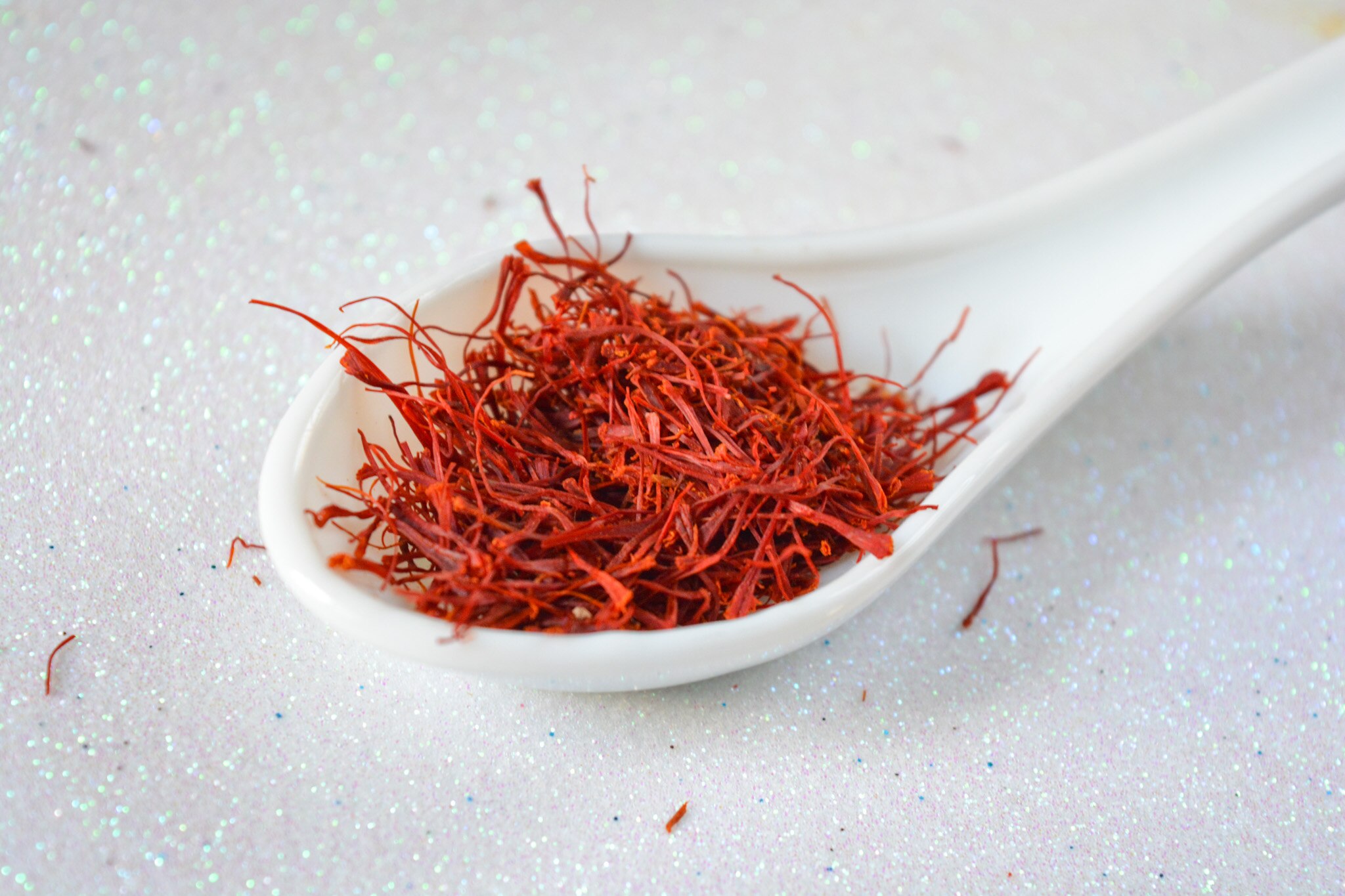I enjoy cooking with different spices, especially those that come with health benefits. Turmeric. Basil. Ginger. Oh, and how can we forget saffron? The world’s most expensive spice, saffron isn’t just known for its hefty price tag, but it also boasts several health benefits, thanks to its high antioxidant content.
Speaking on the benefits of this spice, Dr. Mike Hart, a general practitioner, took to his Instagram to reference a study on saffron as an effective, and potentially safer, alternative to antidepressants.
Saffron and Mental Health

Dr. Mike Hart
In recent years, saffron has gained attention for its ability to boost brain chemicals, which can help with mental health disorders like depression. With that, researchers conducted a systematic review and meta-analysis to evaluate the effectiveness of saffron in treating depression and anxiety, in comparison to selective serotonin reuptake inhibitors (SSRIs), more commonly known as antidepressants.
Per the findings of the study, published in Nutrition Reviews, a few of the studies did not note a significant difference between saffron and SSRIs in reducing depressive or anxiety symptoms. However, regarding safety, participants who received saffron experienced fewer adverse events than the antidepressant group. This then suggests that saffron could be a potential alternative to antidepressants, as it can alleviate symptoms of depression and anxiety with fewer side effects.
Side effects of antidepressants
Antidepressants can come with uncomfortable side effects, with one study revealing that 41% of participants reported that they stopped taking their antidepressants due to side effects. The side effects mentioned included weight gain, lethargy, gastrointestinal complaints, light headedness, loss of clarity of thought and sexual dysfunction.
Additional side effects outside the study that have been associated with antidepressant use include nausea and vomiting, excessive sweating, headaches, and tremors.
Antidepressant withdrawal
Despite the side effects associated with antidepressants, it’s imperative that you do not stop taking your antidepressants unless advised by your doctor. Research published in the British Journal of General Practice found that 56% of people experience some form of withdrawal when they stop taking their antidepressants.
Antidepressant withdrawal symptoms include:
- Irritability
- Anxiety,
- Low mood
- Sleep disturbance
- Suicidal ideation
- Hallucinations
- Dizziness
- Flu-like illness
- Palpitations
- Headaches
- Muscle pain and tremors
- Sweating
- Gastrointestinal symptoms (nausea, diarrhea)
- Sensory disturbances (‘electric shocks’, ‘brain zaps’)
As such, if you wish to stop taking antidepressants, please only do so with the support of a doctor or pharmacist.
Saffron Longevity Benefits
Aside from helping with depression, saffron’s high antioxidant and nutritional value can provide other health benefits.
1. Anti-cancer properties
As mentioned, saffron is incredibly rich in antioxidants, which helps to combat free radicals and potentially reduce the risk for cancer.
A 2022 study examining the cancer-preventive and curative properties of saffron found that, thanks to its presence of powerful antioxidants, vitamins, minerals, saffron may possess potent cancer preventive activities without any severe toxicity.
Aside from reducing cancer risk, a separate 2024 study found that saffron may also minimize side effects, aid treatment, and improve quality of life in breast cancer patients.
Despite its potential anti-cancer benefits, larger scale human trials are needed to confirm the aforementioned findings.
2. Aphrodisiac
For those looking to spice up their sex lives, saffron may be the way to go. Previously published research suggested that saffron may be a safe and effective option to ameliorate female sexual dysfunction.
3. Improve eyesight
Age-related macular degeneration (AMD) is an eye disease blurs vision, and it is one of the leading causes of blindness.
In a study assessing efficacy and safety of saffron in treating mild/moderate AMD, researchers found that saffron supplementation may be useful in preserving retinal function in those with mild/moderate AMD.
4. Cardiovascular health
Cardiovascular disease continues to be the leading cause of mortality worldwide, so it is important to learn of natural remedies to help mitigate this risk.
Per a 2022 meta-analysis published in Frontiers in Nutrition, saffron significantly decreased triglyceride, total cholesterol, LDL, systolic blood pressure, and waist circumference, all of which are considered risk factors for heart disease.
5. Cognitive health
Neurodegenerative diseases like Parkinson’s and Alzheimer’s continue to be one of the biggest threats to human health over the past few decades.
One of the major risk factors for Alzheimer’s is the accumulation of beta-amyloid (Aβ) deposits in the brain. Aside from its strong antioxidant power, saffron may reduce Aβ deposits in the brain, marking it as a potential protective agent against the development and progression of Alzheimer’s.
Adding saffron to your diet
Now that we’ve discussed the incredible benefits of this red gold spice, you might be interested in adding to to your diet. If that’s the case, there are three easy ways in which you can do it;
- Sipp on a cup of Saffron Tea
- Add it to your food as a spice
- Take it as a supplement
References
@drmikehart (2024). Instagram. Available at: https://www.instagram.com/drmikehart (Accessed: 10 September 2024).
Broadhead, G. K., Grigg, J., McCluskey, P. J., Hong, T., Schlub, T. E., Chu, E., & Chang, A. A. (2024). Saffron therapy for the ongoing treatment of age-related macular degeneration. BMJ Open Ophthalmology, 9(1). https://doi.org/10.1136/bmjophth-2023-001399
Coe, A., Gunn, J., Fletcher, S., Murray, E., & Kaylor-Hughes, C. (2023). Self-reported reasons for reducing or stopping antidepressant medications in primary care: Thematic analysis of the diamond longitudinal study. Primary Health Care Research & Development, 24. https://doi.org/10.1017/S1463423623000038
Hamedani, S. G., Pourmasoumi, M., Zarifi, S. H., Askari, G., Jamialahmadi, T., Bagherniya, M., & Sahebkar, A. (2024). Therapeutic effects of saffron and its components on neurodegenerative diseases. Heliyon, 10(2), e24334. https://doi.org/10.1016/j.heliyon.2024.e24334
Mokhtarian, R., Rajabi, S., Zahedian, S., Jafarinejad-Farsangi, S., et al. (2024). The effect of saffron and its extracts on the treatment of breast cancer: A narrative review. Annales Pharmaceutiques FrançAises, 82(4), 629-640. https://doi.org/10.1016/j.pharma.2024.02.011
Palmer, E. G., Sornalingam, S., Page, L., & Cooper, M. (2023). Withdrawing from SSRI antidepressants: Advice for primary care. The British Journal of General Practice, 73(728), 138-140. https://doi.org/10.3399/bjgp23X732273
Kashani, L., Aslzadeh, S., Shokraee, K., Shamabadi, A.,et al. (2022). Crocus sativus (saffron) in the treatment of female sexual dysfunction: A three-center, double-blind, randomized, and placebo-controlled clinical trial. Avicenna Journal of Phytomedicine, 12(3), 257-268. https://doi.org/10.22038/AJP.2022.19714
Shafiee, A., Jafarabady, K., Seighali, N., Mohammadi, I.. (2024). Effect of Saffron Versus Selective Serotonin , et alReuptake Inhibitors (SSRIs) in Treatment of Depression and Anxiety: A Meta-analysis of Randomized Controlled Trials. Nutrition reviews, nuae076. Advance online publication. https://doi.org/10.1093/nutrit/nuae076
Zamani, M., Zarei, M., Nikbaf-Shandiz, M., Gholami, F., Hosseini, A. M., Nadery, M., Shiraseb, F., & Asbaghi, O. (2022). The effects of saffron supplementation on cardiovascular risk factors in adults: A systematic review and dose-response meta-analysis. Frontiers in Nutrition, 9. https://doi.org/10.3389/fnut.2022.1055517



![women [longevity live]](https://longevitylive.com/wp-content/uploads/2020/01/photo-of-women-walking-down-the-street-1116984-100x100.jpg)










